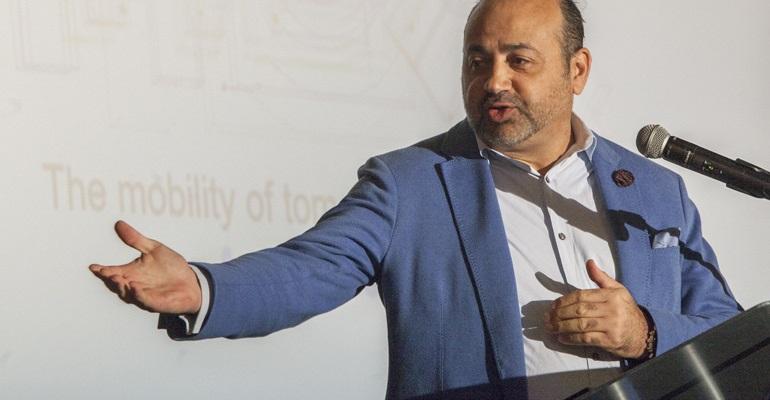NOVI, MI – They’re not smart enough now, but a next generation of chatbots may someday field automotive customer complaints, no easy job under any circumstance.
Their expanded use is predicted by Henry Bzeith, senior vice president and chief technology officer for Flex, a global company that provides designs and prototypes to various industries.
Before joining Flex seven months ago, Bzeith was part of a team at automaker Kia that developed an artificially intelligent chatbot that’s now in use to assist shoppers. “It was an exciting project,” he tells WardsAuto at the 2018 WardsAuto User Experience Conference here.
Currently, Kia uses the chatbots to field basic product questions from car shoppers. Customers contacting the automaker with complaints or issues communicate with humans.
“But down the road, as the chatbots get smarter, they may be used (to handle customer beefs),” at least to an extent, says Bzeith, whose company’s projects have included partnering with NASA in making mobility joints on the Curiosity Rover used to explore Mars.
Back on earth, various other industries use faceless chatbots to interact with customers. Examples: shopping and ordering pizzas, says Chris Schreiner, director-user experience practice for Strategic Analytics. “We’ve seen a big growth in their use.”
But they face marketplace challenges, he says. “A lot of consumers don’t know where to go to find them or think about using them.”
Asked about Kia’s chatbot use, Schreiner says, “It’s good, but limited interaction for a well-defined simple task.”
He adds, “It could cover 80% of certain customer interactions, but it’s the other 20% where frustrations occur and that needs (more) development.”
Development of any emerging innovation is a journey, Bzeith says. It’s hard to nail it immediately. “You refine it and make it better.”
Schreiner talks of how virtual reality is going beyond gaming and into other fields, including automotive, such as using VR to simulate vehicle test drives. “It can be a powerful tool,” he says.
Digital assistants such as Echo and Alexa are finding their way into cars, “Although right now in the U.S. and Europe they are just used for playing music,” he says during a conference session on what automotive can learn and borrow from other industries.
Consumers are moving from reactive to proactive in their purchases, says Kimberly Clavin, vice president of Loop by Pillar, a software service provider that validates the security, reliability and compatibility of software-hardware integration.
Consumers expect businesses to know something about them based on their recorded purchase histories, she says.
The brass ring is to use predictive analytics and maintenance to both decrease costs and increase customer satisfaction, Clavin says. She notes many companies purchase others for their technical innovations.





